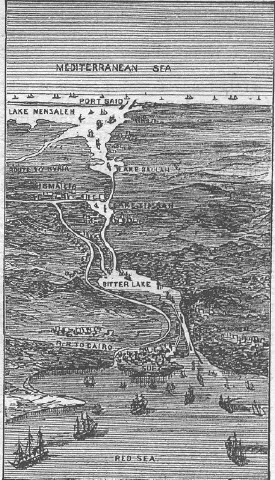A
Deplorable Proposition
 |
| Napoleon Crossing the Alps |
The
General
In
1798, General Napoleon addressed his troops who were preparing to do battle
with Mamluks, a slave-warrior caste which had directly and indirectly ruled
Egypt for over five hundred years.
 |
| Myrbach-Charge_of_the_Mamluks Battle of the Pyramids |
His
goal was to wrest Egypt from the Ottoman Empire and obstruct Britain's access
to India.
Pointing
at the Great Pyramids of Giza that stood before them, he cried out:
"Soldats! Du haut de ces Pyramides, 40 siècles nous contemplent".
(Soldiers!
From the top of these Pyramids, 40 centuries look down upon us.) This estimate of Napoleon's of the antiquity of the pyramids was all guesswork
on his part as no one at that time really knew the age of the pyramids.
As
it turns out, even this seemingly generous figure underestimated their true age
by half a millennia (not a bad guess but).
 |
| Bonaparte Before the Sphinx_Jean-Léon_Gérôme |
It
is noteworthy that Napoleon Bonaparte was born in the same year as Mohammad
Ali, for it was he would actually set the stage for Mohammad Ali's rise to
power in Egypt.
In
1798, Egypt was an Ottoman province ruled by the Mamluks. However, in that
year, Napoleon invaded Egypt and conquered the Mamluk army at the Battle of the
Pyramids.
 |
| Battle of the Pyramids on 21 July 1798 Louis-François_Baron_Lejeune |
This
short occupation of Egypt by the French had a very lasting effect on the
country and for that matter, on Egyptology, but after a sea battle with the
English off Egypt's Mediterranean coast, Napoleon was forced to withdraw back
to France. Some
of his military forces remained to occupy the country, but they too were soon
withdrawn, leaving behind a power vacuum in Egypt.
 |
| Muhammad Ali Pasha or Mehmet Ali Paşa |
The
Pasha
After
defeating the Mamluks in Lower Egypt, Napoleon failed to consolidate his
control over the entire country.
 |
| Admiral_nelson |
Nelson managed to descry his fleet and in 1799,
Napoleon left Egypt on a more pressing matter: to assume mastery of France. Two
years later the French quit Egypt entirely.
This
left a power vacuum which lead to a civil war and in 1805 control of the
country fell to Muhammad Ali, an Albanian commander, who claimed to be
reasserting the suzerainty of the Ottomans over Egypt but in practice began to
rule the country as an independent nation.
Mohammad
Ali Pasha, the first and most famous of this line of Egyptian kings was
actually born in Kavala, a small Macedonian seaport on the coast of the Aegean,
what is now known as A much younger Muhammad Ali, in this drawing by Chris
Hellier, is referred to as Mehmet Ali Pasha Greece, in 1769.
At
that time, Kavala was a part of the Ottoman Empire. The son of the local police
chief, his father, Ibrahim Agha, when Mohammad Ali was still quite young, and
so the boy was taken in to service by the governor of the city, where much of
his early training took place.
He
was Turkish by origin and Turkish speaking, yet trained in a European province
of the Ottoman Empire, so he brought with him political skills honed in the
century-long conflict between the three great empires that disputed control of
the Balkans.
Commonly
called Mehmet Ali, as a young man he worked for a while as a tobacco merchant,
before taking a commission in the Ottoman Army.
 |
| Slaughter of Mamluks |
Muhammad
Ali liquidated the Mamluks, first by assassinating their leadership (the old
feast and daggers trick) and then through outright massacre of the troops,
destroying their power forever.
 |
| Massacre of the Mamelukes at the Cairo citadel | | | | |
 |
| Mouhamed_ali_army&navy |
He
then went on to create a modern professional army which was based on peasant
conscription, education institutions and a series of massive infrastructure
projects designed to boost Egypt's economy and develop it into a formidable
industrial and military power.
 |
| SUEZ CANAL Cotton market at Zigazag Egypt |
 |
| Suez_Canal_drawing_1881 |
He
built roads, canals, dams along the Nile and established Egypt as the world's
largest cotton producer.
Through
these tireless efforts at modernization and his ruthless exploitation of the
peasantry, Muhammad
Ali sought continually to strengthen his autocratic grip on the country and his
de facto independence from Istanbul.
 |
| Cairo-citadel-1800s |
 |
| The
Mosque of Muhammad Ali was built over 24 years, from 1824-48, and it
was modelled on the Blue Mosque in Istanbul. The mosque made a
statement of Muhammad Ali's independance from the Ottoman Sultan. |



















